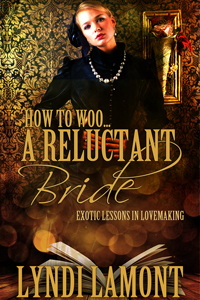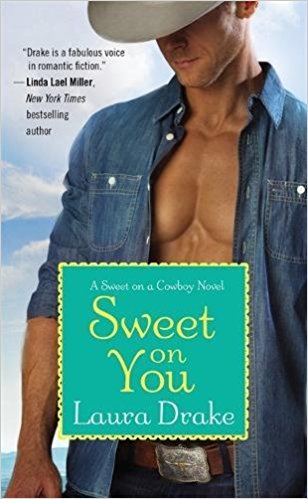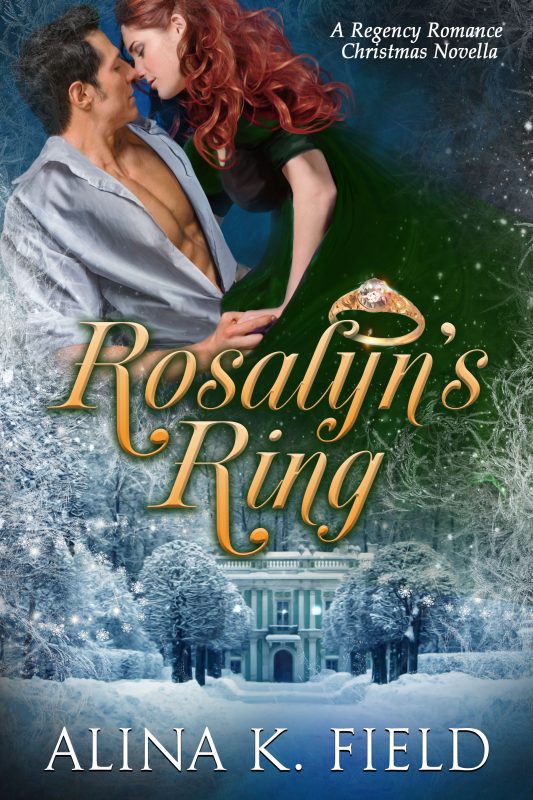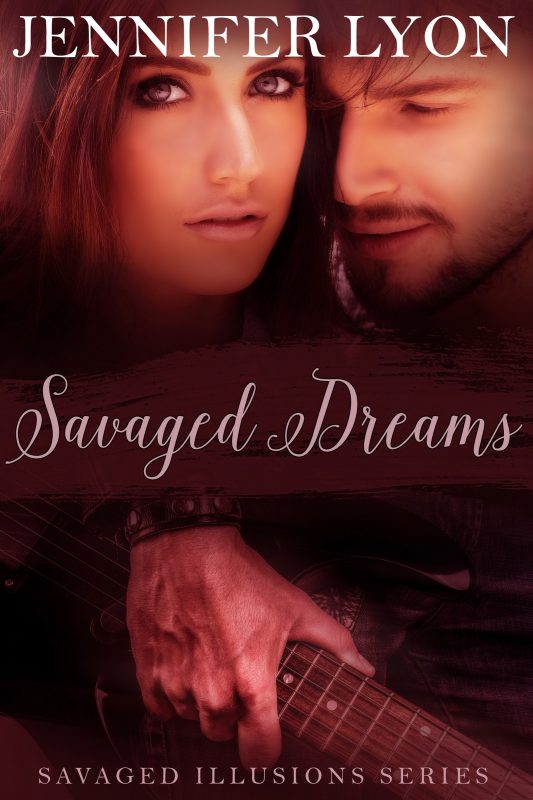FLOWERS IN THE ATTIC: A Terrifying Tale of Backlists
March 15, 2011 by A Slice of Orange in category Archives tagged as backlists, Digital only publishing, strategy, writing processOne of the strangest books ever written was Flowers in the Attic (V.C.Andrews). There is lots to talk about with this book (incest, misguided religiosity, family acceptance and love) but those are topics better left to a book group discussion.
What really terrified me was the premise of that book. A mother locks her kids in the attic and forgets about them. The children languish, nearly dying in that attic, until they rise up and confront her. They are no longer willing to be locked away. And that brings me to the topic of the day: books, backlists and half finished manuscripts locked in our creative attics.*
My friend and fellow author Brian Drake deals beautifully with the subject of discarded manuscripts and whether the are salvageable in his blog Bringing Back the Dead , so I would like to focus on the opportunities and challenges traditionally published authors face when dealing with their backlist.
My own career has been neatly split in two distinct genres: Romance/women’s fiction and legal thrillers/police procedurals. Over 26 years I had my rights reverted to all 23 of my novels as soon as I was contractually able. I had no idea then that rights reversion would turn out to be the smartest move I ever made. In control of my work, I was perfectly positioned to digitally publish, POD or self-publish my literary inventory. I chose to concentrate on digital publishing, taking advantage of the explosion of E-readers.It took a year to scan all my thrillers, create covers, edit for scanning errors, properly format and upload my 11 book backlist. The effort was worth it.
My faith in my thrillers has been rewarded by good sales, excellent reviews and a growing following. I realized, though, that I had the advantage of name recognition as my fan base moved from paper to IPads, Nooks and Kindles.Spurred on by this clear opportunity, it seemed logical to follow the same strategy with my early books (romance and single title contemporary women’s fiction). Yet when I went to my literary ‘attic’ and opened the door I didn’t exactly find my ‘flowers’ in full bloom.
The truth was that some of my work should not be resurrected. The very first book I wrote was creatively tentative, predictable and descriptively overwrought. This was a far cry from the intricately plotted books I penned later in my career. In short, it was clear I had learned a lot between the first book and the last. I tried to convince myself the craft didn’t matter. Books were books and someone would like these. But I also realized many more people would be put off by these early efforts. That would impact both my reputation and my sales. I might never be able to convince those readers to give me another chance. When I weighed the pros and cons it came down to this: would I be proud to have these first books in the hands of an avid reader? For three books, the answer was no.
I want to make it perfectly clear, I am not ashamed of anything I have written. All my books were published by respected New York publishers. Each represents my best effort at that stage of my career but some of those books are not representative of the author I have become. When a reader chooses to sample my early work, I want them to hear my unique voice (I had no POV in the three I will not re-publish). I want the reader to be engaged in a multi-layered story (my early work is linear). I want a reader to get to know well-drawn characters that live in a complete universe (my early characters were two dimensional and their universe limited).
In my memory, I believed my attic was full of fabulous books; in reality, I had stored away my building blocks. I am wise enough now to recognize that the reader’s experience is more important than my ego. Just because I wrote a book twenty years ago does not make the work viable today unless it clearly shows emerging strengths. If I republish my initial stumbling as I tried to find my literary feet, I run the risk of alienating a reader rather than piquing their curiosity. I want each book to show how I have grown as a writer. Bottom line, if any of my work might waste a reader’s time or money it should be set aside.
So, as much as it pains me to admit it, as hard as it is to close that door, there are some flowers that need to stay in my attic. I am ever so grateful that they are there to remind me of where I’ve been, how far I’ve come and that writing is hard work. I might visit them once in a while but, like V.C. Andrews has shown me, sometimes there are reasons you need to lock the door and walk away.
*These thoughts can be applied to any creative effort: painting to pottery, music to manufacturing.
IT’S A WRAP (DREW CAREY’S PARTIES)
March 13, 2011 by Marianne H. Donley in category Archives, Eye on Hollywood by Bobbie Cimo tagged as Bobbie Cimo, Eye on HollywoodWhen Bob Barker announced he would be leaving “The Price Is Rightâ€, I must admit I was a little pessimistic that the show would continue with the same success as it had in the past.
Well, it’s been over three years now and I’m happy to say the show is still on the air and a whole bunch of people are still employed because of it. Drew shows his appreciation to everyone associated with the show by throwing the best wrap party I’ve ever been to and pays for it out of his own pocket, too.
The first party he hosted was on a Saturday night in some hot spot in Hollywood. I wasn’t familiar with the name of the club, but I was told by my co-workers it was a popular place. But the thought of driving into Hollywood on my day off, after a long work week didn’t appeal to me, so I passed on the invite. A decision I regretted when I heard how fantastic the party was that I missed. Not only did he fly in food from New York and his home state of Ohio, but he gave all the employees who attended a gift. It was a video recorder you can play back on your computer. Not being computer savvy, I’m not sure what it’s called.
The next year when the invitations went out, I was the first one to RSVP. That year, the party was held at the Congo Room in downtown L.A. and Drew brought in entertainment. It was The Brian Setzer Orchestra, (formerly frontman of the “Stray Catsâ€). The food was delicious and as enjoyable as the music was, it was loud–good, but loud. And the gift was an iPod Nano (which I have yet learned to use).
This was also the year Drew lost over forty pounds and decided to become health conscious. So there were no signs of fried chicken, spare ribs, or macaroni and cheese dishes (some of the fattening food served the year before). This time it was all sensible eating inside the party except for the Lemon Drop Martinis and Cosmos that were flowing freely. And if you really wanted to be sinful, there was carnival type food outside the hangar, like hot dogs and cotton candy. I’m sure this was done to keep all temptation out of Drew’s vision.
All and all the party was a huge success and I can’t wait to be invited to this year’s shindig…only this time I’ve promised myself to go easy on the Lemon Drop Martinis.
Between the Lines with Kara Lennox
March 12, 2011 by Marianne H. Donley in category Archives tagged as Brenda Parrish, Harlequin Super Romance, Kara Lennox Kara Lennox is the bestselling author of more than fifty published novels of romance and romantic suspense. She has been published by Silhouette and Bantam Books as Karen Leabo, and currently writes for the Harlequin American Romance, Silhouette Desire and Signature Select lines as Kara Lennox. Some of her more popular series for the American Romance line are How to Marry a Hardison and Blond Justice.
When lies turn to attempted murder, they must hunt down the truth together…to prove her innocence, protect an honest man and save both their lives.
Q) You have an amazing backlist of books that spans two decades. How do you continue to generate new and fresh ideas?
A) Actually, sometimes I’ll be brainstorming a book, and I’ll say to myself, “This is good. This is really … oh, wait, I already wrote that book.” And certain themes appear over and over in my books. (For instance, my heroines are often struggling with independence vs. commitment–because it’s a struggle I find to be endlessly rich.) But I never seem to run out of ways to spin a story. I like to be inspired by nonfiction stories, I eavesdrop everywhere I go, and everything I read or see has the potential to inspire a story. I keep notebooks full of snippets of dialogue or interesting characters, pictures, ideas for settings, interesting jobs. I don’t organize it, just leave through them sometimes to see what strikes me.
Q) Your work has been primarily geared towards series romance. In your opinion, what advantages does publishing as part of a series have over single title publication?
Series romance offers lots of advantages. It’s a great place for a new author because there is a built-in audience. By writing shorter books, you have the opportunity to publish more titles, which gets and keeps your name out in front of the readers. And although I wouldn’t say royalties are ever “predictable,” the payouts are perhaps a little less erratic and you can make some estimates as to what you’ll earn on a given book. The specific requirements and guidelines for each line give the author a framework to build on, so you don’t have to reinvent the whole wheel each time you write a book. Harlequin does a great job publishing foreign editions (and selling sub rights) so your book lives on in many different editions for years to come. And if you are very prolific, or you have more than one kind of books you like to write, Harlequin can accommodate you.
Q) What is your process for self-editing your manuscript before you submit it?
It varies from book to book. Some books just write cleanly from beginning to end, so I might only do one edit plus one polish. Others are just disastrous from the start and I end up ripping them up, rearranging parts, throwing out whole chapters. I usually make one pass through the rough draft and make notes on what has to be done, then work up a game plan so I can schedule my time and not miss any deadlines. My husband will read the manuscript when I’m done, and I will go through one last time to address his comments.
Q) Are you a planner or a pantser?
I’m definitely a planner. I outline everything ad nauseum. I love structure, I love pulling apart stories to see how they work (or why they don’t work).
Q) What does your writing work day/schedule look like?
I write Monday through Friday, usually in the mornings. I try to get my page count done before lunch and leave the afternoons for other writing-related activities (research, judging contests, online classes, proofreading galleys. It doesn’t always work that way; sometimes it takes me all day to get those pages written. As a deadline approaches I’ll put in more hours, evenings and weekends, but I try to keep a sane work schedule. I’m not one who thrives on deadline pressure.
Q) What advice would you give a new writer who is looking for a career in publication?
Just keep showing up. Selling that fist book involves hitting the right editor with the right material at the right time. So your chances are increased the more you write and the more you send out. Keep trying to get better. Try different things; write in different genres to keep yourself motivated and challenged. Read writing books and take classes. Network and attend conferences. Immerse yourself in it. Just in the past couple of years I’ve had a lot of friends make that first sale after working at it for many years, so don’t give up or think it won’t happen for you. I have a stack of rejections that could choke a horse, collected both before and after I sold my first book. Keep improving your craft and keep sending stuff out.
Brenda Parrish is a member of OCC/RWA and is currently hard at work at her own fiction. She recently finaled in the Jane Austen Made Me Do It Contest! You can follow her on Twitter @itsBren
Don’t forget to SHOW
March 12, 2011 by A Slice of Orange in category Archives
Job Interview Questions for Your Romance Novel Heroine
March 11, 2011 by A Slice of Orange in category Archives tagged as Confessions of a Podcast Goddess, heroine, Interview, job, regency, reporter, romance, romance novels, vampire, Victorian
by Evelyn Q. Darling
Romance Reporter At Large
Is your romance novel heroine qualified for the job?
Did you interview her before you started writing? I don’t mean where she went to school, what her favorite color is, etc. but whether or not she’s qualified for the job as a romance novel heroine.
For example, does she have the skills needed to perform her job: Can she shoot a Glock if you’re writing an FBI agent? Lace up a corset if she’s interviewing for the job as a Victorian lady’s maid?
Or she may be overqualified for the job. For example, she can type faster than you or she has aspirations to leave the romance novel field and get a literary gig.
How long has she been out of work?
Romance novel jobs are hard to get and if it’s been decades since she slipped between the pages of a novel, you might want to reconsider. On the other hand, experience between the sheets is important for every romance heroine.
A typical interview could go like this:
Miss Jones, I’m writing a novel that takes place during the Regency Period. Are you a fan of Jane Austen?
Miss Jones: Jane who? I’m so into Lady Gaga. Love her sunglasses.
Next…
Miss Smith, my next novel is about an FBI agent who’s very physically active to catch the bad guys. Can you drop and do twenty?
Miss Smith: the only thing I dropped was twenty pounds to get this interview.
Let’s try again.
Miss von Rittenhaus, I need a romance novel heroine who sleeps all day and bites all night. Can you list your qualifications to be the vamp queen in my new urban fantasy novel?
Miss von Rittenhaus: Honey, I can snooze and cruise with the best of them. I’ve hit every vamp bar from here to
When can you start?
Miss von Rittenhaus: Tonight. As soon as the sun goes down. (Pause). You haven’t mentioned a benefits package.
What do you mean?
Miss von Rittenhaus: Do I get overtime pay for all this night work? And how about a 401K? I’m not getting any younger and in this economy a girl, I mean vamp, has to look out for herself. What about my e-rights? And health benefits? What if I chip a fang and I have to see a dentist between chapters?
Jeez…Romance heroines…you can’t write with them and you can’t write without them.
This is Evelyn Q. Darling. Till next time when we’ll interview the romance novel hero and see if he’s up for the job.
The Blonde Samurai: “She embraced the way of the warrior. Two swords. Two loves.â€
Jina Bacarr is also the author of The Blonde Geisha ,Cleopatra’s Perfume, Naughty Paris, Tokyo Rendezvous, a Spice Brief, and Spies, Lies & Naked Thighs
Affiliate Links
A Slice of Orange is an affiliate with some of the booksellers listed on this website, including Barnes & Nobel, Books A Million, iBooks, Kobo, and Smashwords. This means A Slice of Orange may earn a small advertising fee from sales made through the links used on this website. There are reminders of these affiliate links on the pages for individual books.
Search A Slice of Orange
Find a Column
Archives
Featured Books
TRACKING SHADOWS
When danger whispers in the dark, the shadows are the last place to hide…
More info →HOW TO WOO … A RELUCTANT BRIDE
Can an arranged marriage lead to love?
More info →ROSALYN’S RING
A rash Christmas Eve quest to save a young woman lands a Baron’s daughter in the lap of a jaded Viscount…and he’s not letting her go.
More info →SAVAGED DREAMS
How much will she risk for love? How far will he go for fame?
More info →Newsletter
Contributing Authors
Search A Slice of Orange
Find a Column
Archives
Authors in the Bookstore
- A. E. Decker
- A. J. Scudiere
- A.J. Sidransky
- Abby Collette
- Alanna Lucus
- Albert Marrin
- Alice Duncan
- Alina K. Field
- Alison Green Myers
- Andi Lawrencovna
- Andrew C Raiford
- Angela Pryce
- Aviva Vaughn
- Barbara Ankrum
- Bethlehem Writers Group, LLC
- Carol L. Wright
- Celeste Barclay
- Christina Alexandra
- Christopher D. Ochs
- Claire Davon
- Claire Naden
- Courtnee Turner Hoyle
- Courtney Annicchiarico
- D. Lieber
- Daniel V. Meier Jr.
- Debra Dixon
- Debra H. Goldstein
- Debra Holland
- Dee Ann Palmer
- Denise M. Colby
- Diane Benefiel
- Diane Sismour
- Dianna Sinovic
- DT Krippene
- E.B. Dawson
- Emilie Dallaire
- Emily Brightwell
- Emily PW Murphy
- Fae Rowen
- Faith L. Justice
- Frances Amati
- Geralyn Corcillo
- Glynnis Campbell
- Greg Jolley
- H. O. Charles
- Jaclyn Roché
- Jacqueline Diamond
- Janet Lynn and Will Zeilinger
- Jeff Baird
- Jenna Barwin
- Jenne Kern
- Jennifer D. Bokal
- Jennifer Lyon
- Jerome W. McFadden
- Jill Piscitello
- Jina Bacarr
- Jo A. Hiestand
- Jodi Bogert
- Jolina Petersheim
- Jonathan Maberry
- Joy Allyson
- Judy Duarte
- Justin Murphy
- Justine Davis
- Kat Martin
- Kidd Wadsworth
- Kitty Bucholtz
- Kristy Tate
- Larry Deibert
- Larry Hamilton
- Laura Drake
- Laurie Stevens
- Leslie Knowles
- Li-Ying Lundquist
- Linda Carroll-Bradd
- Linda Lappin
- Linda McLaughlin
- Linda O. Johnston
- Lisa Preston
- Lolo Paige
- Loran Holt
- Lyssa Kay Adams
- Madeline Ash
- Margarita Engle
- Marguerite Quantaine
- Marianne H. Donley
- Mary Castillo
- Maureen Klovers
- Megan Haskell
- Melanie Waterbury
- Melisa Rivero
- Melissa Chambers
- Melodie Winawer
- Meriam Wilhelm
- Mikel J. Wilson
- Mindy Neff
- Monica McCabe
- Nancy Brashear
- Neetu Malik
- Nikki Prince
- Once Upon Anthologies
- Paula Gail Benson
- Penny Reid
- Peter Barbour
- Priscilla Oliveras
- R. H. Kohno
- Rachel Hailey
- Ralph Hieb
- Ramcy Diek
- Ransom Stephens
- Rebecca Forster
- Renae Wrich
- Roxy Matthews
- Ryder Hunte Clancy
- Sally Paradysz
- Sheila Colón-Bagley
- Simone de Muñoz
- Sophie Barnes
- Susan Squires
- T. D. Fox
- Tara C. Allred
- Tara Lain
- Tari Lynn Jewett
- Terri Osburn
- Tracy Reed
- Vera Jane Cook
- Vicki Crum
- Writing Something Romantic
Affiliate Links
A Slice of Orange is an affiliate with some of the booksellers listed on this website, including Barnes & Nobel, Books A Million, iBooks, Kobo, and Smashwords. This means A Slice of Orange may earn a small advertising fee from sales made through the links used on this website. There are reminders of these affiliate links on the pages for individual books.











































